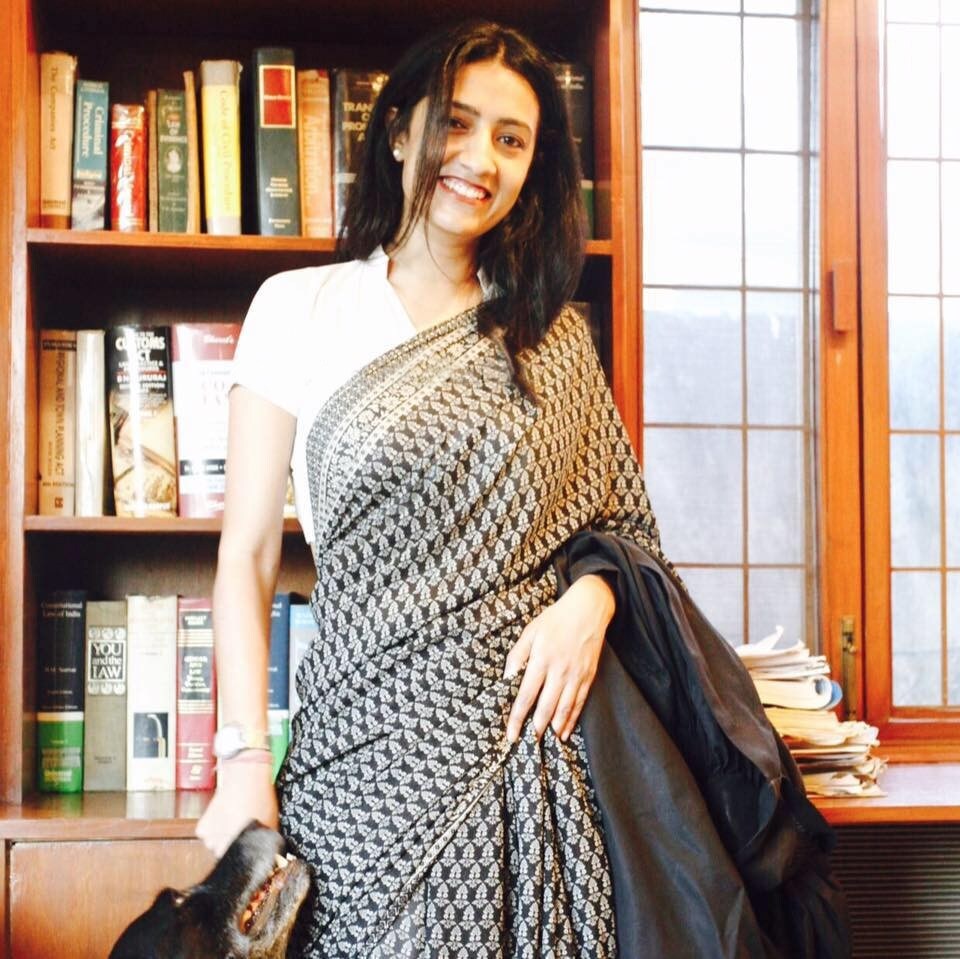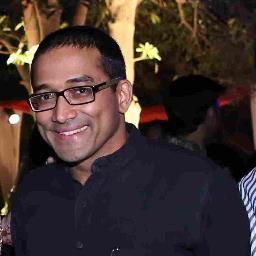
Years of service in a senior counsel's chamber, putting in unthinkable hours of drudgery, and painstakingly establishing a practice has been the usual route to success in the legal profession where tradition is venerated.
On this week's edition of Libraries Of Leaders we took a peek into the libraries of three young and successful lawyers who have established formidable reputations in a relatively short time. Here is what Karuna Nundy, Apar Gupta and Somasekhar Sundaresan read and recommend.
1. Karuna Nundy

Cambridge-educated Karuna Nundy worked at international tribunals and the United Nations before she returned home to establish her litigation practice at the Supreme Court of India. She is best known for her work in human rights law and has been the face of the battle for justice for victims of the 1984 Bhopal gas tragedy. She is an equally successful corporate lawyer and a consultant to many large corporations such as Airbus and Dabur. She shared some of her favourite books with BloombergQuint.
1. Bhimayana: Experiences of Untouchability by Subhash Vyam and Durgabai Vyam
The beautifully illustrated graphic novel tells the story of India's caste system and how little has changed in rural India despite legislation meant to address the problem. It also dwells on the humiliation and discrimination faced by a brilliant individual – BR Ambedkar – solely because he was a dalit.
2. The Annihilation of Caste by BR Ambedkar
The book, written in 1936, is a scholarly critique of the Hindu scriptures which Ambedkar holds responsible for an unequal society. Mahatma Gandhi was not amused by the work and the public spat that ensued between them was never really resolved.
Bhimayana is well paired with the Annihilation of Caste by Ambedkar, where he slices through the realpolitik of Mahatma Gandhi and other leaders denying dalits complete human rights. It's apt that our Constitution was guided by someone who understood the politics of law and equality so vividly.Karuna Nundy, Advocate, Supreme Court
3. When Things Fall Apart by Pema Chodron
Pema Chodron is a Buddhist nun and one of the most influential voices in contemporary spirituality. The book addresses important themes like productivity, how to work through chaotic situations and succeed even when things are falling apart.
......her guidance for life is simple – live in the moment without hope or fear, see life and its stories as the impermanent things they are. If the idea is deeply understood, it can lead to a fuller, easier use of one's short life.Karuna Nundy, Advocate, Supreme Court
2. Apar Gupta
.jpg)
Apar Gupta was all of 24 when he started writing his book on India's Information Technology Act. The book, Commentary on Information Technology Act, is now considered a ready reckoner on the Act. Gupta is a media law specialist, and according to Forbes magazine, is in the business of protecting internet freedom for the long haul. Here are some of his favourite books.
1. Trial by Fire by Neelam and Shekhar Krishnamoorthy
The book tells the story of the battle for justice undertaken by the parents of two victims of the Upahaar Cinema tragedy, in which 59 people lost their lives when a fire broke out at the theatre in 1997. The book appealed to Gupta as it gave him a different perspective on the challenges faced by a litigant.
2. My Own Words by Ruth Bader Ginsburg
A witty and engaging read, the book was Ginsburg's first after she became a U.S. Supreme Court Justice in 1993. It offers deep insights into the workings of the Supreme Court and dwells on the challenges of being a Jewish woman, among other things.
I have always felt a lawyer is secured by a moral centre but to discover and question, you need to introspect. Rather than merely listing her accomplishments in the book the author provoked me to think about gender, civil rights, and civility.Apar Gupta, Advocate
3. Portnoy's Complaint by Philip Roth
The book tells the story of a young Jewish bachelor's confession to his psychoanalyst about his insatiable and sometimes perverse sexual appetite which is at odds with his deep sense of morality and altruistic impulses. It is funny, bold, and unapologetically explicit.
3. Somasekhar Sundaresan

An avid trekker and a reputed expert on securities law, Sundaresan briefly worked as a journalist with the Times of India whilst still in law school. Later, he became a senior partner at one of the country's biggest law firm, J Sagar and Associates, before joining its executive committee. He quit the firm earlier this year to establish an independent practice.
1. Sapiens: A Brief History of Humankind by Yuval Noah Harari
An in-depth look at the evolution of man and how homo sapiens succeeded in the battle for dominance against six other human species. The book dwells on how we came together, conceptualised god, created laws, built cities, and enacted and enforced laws. The book's central theme – can we free our behaviour and actions from the influence of our heritage and ancestry, and if yes, how?
This should be a curriculum reading in school – an amazing connection of dots in simple layman terms, across history, geography, politics, conflicts, anthropology, sociology, and the evolution of man as we can know it best.Somasekhar Sundaresan, Advocate & Independent Legal Counsel
2. Being Mortal by Atul Gawande
The author, who is also a practicing surgeon, looks at the challenges that his profession faces, with its emphasis on prolonging life. It calls for a change in the philosophy of healthcare – ensuring well-being rather than just health and survival. He also addresses the difficult question of how medicine may have a role to play in the process of ending life.
A must-read for anyone remotely interested in matters of quality of life as compared to standards of living and quantity (length) of life, the last of which most people are fascinated by, living as we do in a constant delusion of immortality.Somasekhar Sundaresan, Advocate & Independent Legal Counsel
3. The Freethinker's Prayer Book by Khushwant Singh
The book is a collection of the author's favourite passages from the seminal texts of the major religions of the world, both in verse and poems. Sundaresan said that the book touched him every time he read it, reminding him of the universality of wisdom, love, and compassion across all faiths.
Essential Business Intelligence, Continuous LIVE TV, Sharp Market Insights, Practical Personal Finance Advice and Latest Stories — On NDTV Profit.























